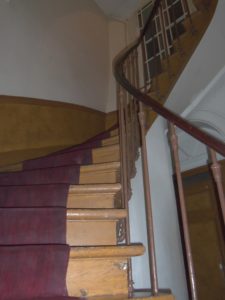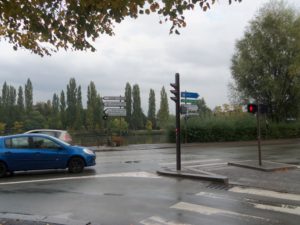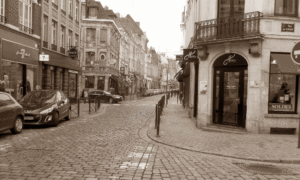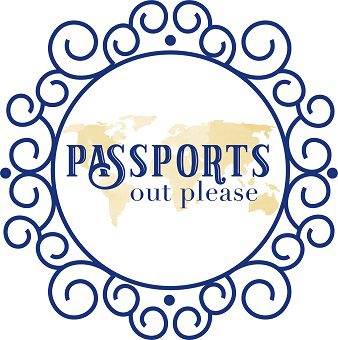Handy Skills to Take to Europe
The beauty of travel is that you are constantly learning and discovering. Seeing things in a different way makes you realize how easy it is to get used to things at home. While living in Europe these are some small differences I noticed in my everyday life compared to living in Canada. Even if you like them better or worse, they make you remember that you are in a different country- and reminds you to love the ride.
- Pack your math skills | It is very common in North America for the waitress to give everyone at the table their own bill. She will even divide up that pitcher of sangria you had by 2, she will divide the starter garlic bread by 3 and charge you 1/15th of your friend’s dinner because it’s his birthday. This will not happen in Europe. They come and put the cheque down in front of you for the table, and you have to figure out how much you owe when you just want to pay for yourself. It is handy to carry cash for this reason, so you can all put in your contribution. I do feel that the math is easier, as the prices seem to be nice round numbers and the tax is already added into the prices, so don’t worry about calculating 1.13% divided by 15.

Telling time is important when travelling - What time is it? | North America very often operates on the AM and PM system. Europe uses what we call “army time” or the 24-hour clock. What would be 12 am – 11am is the same, but after 12 pm the hours keep increasing so 1pm=13:00 and 2pm=14:00 etc. I remember having trouble with army time when it was a calculation for me and not a reflex. But after having to use it so much I must say that I now prefer it and have changed my cell phone and car clock to display it all the time. One advantage is never having to worry about setting your alarm for 7pm by accident when you really wanted it at 7am!

Learn to love stairs - Feel the Burn | Everything is much more compact in Europe. In Paris it was very common for the McDonalds to be 2 floors instead of one. Because of this, there are much more stairs. When I arrive in Europe for the first few days I realize that I do not use a lot of stairs in Canada. When the option is there I take it, but since everything is more spread out there aren’t as many stairs. This is a good thing for your body to do some stairs- but when you haven’t done a lot in awhile you do notice the difference.
- Love Mondays | A European calendar starts its week on a Monday. I can’t say that I have jumped on this train as well as I did with army time, but I just go on with it. My advice would be to either go with it or not. If you are consulting a few calendars at once (ex. Personal and work calendar) then try to keep them all the same, otherwise it will get way too confusing.

Driving can be a great way to see a new place! - Driving standard | This doesn’t matter if you aren’t going to rent a car. But if you are planning to rent a car in Europe I strongly recommend getting someone to teach you standard at home first. It is possible to hire automatic cars, but there is a large price difference and could cause inconvenience. If you are looking to book your car in a small town, or last minute, chances are you will have to travel to a bigger center to find an automatic.
- Pack your own groceries | Customer service is a different thing across the pond. I mean less. They aren’t there to bend over backwards to your every need, they are there to take your money. All of the “built-ins” are taken out. This means packing your own groceries and weighing your own vegetables.

Below are some other differences that are worth remembering:
- Some bathrooms are paid bathrooms so keep more spare change. This can result in cleaner and better-kept bathrooms in most cases, so I don’t mind paying a few coins that I probably wasn’t even going to use anyways.
- Taxes are included in the prices of things. The shelf price is the price that you pay.
- In the UK the decimals are like North America. On the continent (mainland Europe), the comma is where the decimal is and the decimal is where we would put a comma.
- 1 billion means something different in different countries. There is a million 1 000 000 with 6 zeros, then a thousand million 1 000 000 000 with 9 zeros and then 1 billion 1 000 000 000 with 12 zeros. I believe that in economics and business this could be going more towards the American way. This is an example of things that we just expect to be because they are. It wasn’t until a long debate in Spanish class that I even realized that this difference existed.
- Another difference that I especially have to remember when speaking Spanish is that for them “America” refers to the whole continent of North and South America and if they want to specify those Star-Spangled folks, they say “United States” specifically. In English, America never (for me anyways) has the connotation of the entire two continents, but in other languages it does.
- In North America if you walk into a multi-story building you will be on the first floor and go up accordingly. In Europe when you walk into a building you are on floor 0, and have to go up accordingly. This is very important for when you are late for your apartment viewing that is located on the first floor.
- In the UK you will see a switch beside the electrical outlet. This turns on the power, if you plug something in and forget to turn on the power, there will be no electricity. This is the worst when you expect your phone to be fully charged and in fact nothing has happened.
- Tipping is a North American thing- not expected in Europe.
These are all small details- but can be handy to know and remember. Enjoy your time abroad!
